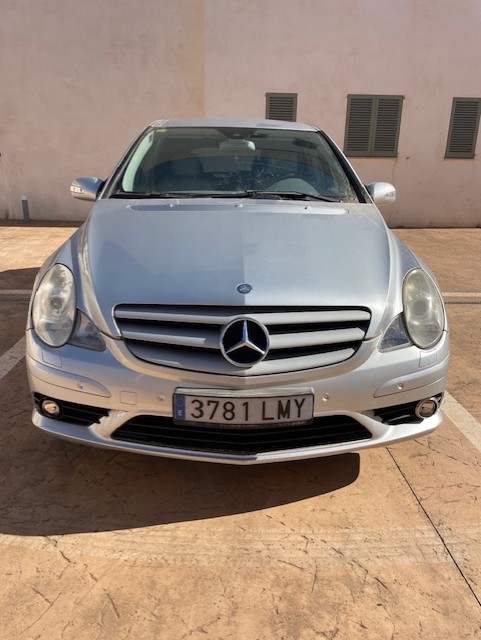
How to get through an ITV test stress free
What is an ITV test?
Every country has some kind of requirement to have vehicles inspected for roadworthiness. The British call it a MOT, the Germans call it TÜV, the French call it contrôle technique, and in Spain it is called an ITV test. The ITV in a nutshell is an inspection done on your vehicle to make sure it is safe to operate and also fulfills all the emissions requirements.
Where can I get an ITV done on my vehicle?
The ITV test is conducted by special ITV stations dedicated to this task. Google can easily show you the nearest station when you search for the key phrase “ITV” on google or google maps. Some districts also have mobile ITV stations that are dispatched to a certain area which might be closer to you than the official station.
Use your local ITV stations website to make an appointment online. This has been proven to be the fastest and easiest way to get an appointment.
When do I have to have my vehicle inspected by the ITV?
- Cars: New vehicles purchased in Spain are exempt from the ITV for the first 4 years. After these 4 years all vehicles have to be inspected every 2 years until they are 10 years old. Any car older than 10 years has to be inspected every year.
- Motorcycles and quads: These also are exempt for the first four years, however afterwards are only due for an inspection every 2 years no matter the age.
- Buses / Coaches: Buses and coaches are exempt from the ITV inspection for the first 5 years. Afterwards they are due every 6 months.
- Mopeds: Mopeds are exempt from an ITV inspection for the first 3 years, and afterwards are due every 2 years
- Trailers: If your trailer has a MMA of 750 kilograms or less, it is exempt from the ITV test. Trailers over 750 kilograms but less than 3.5 tons MMA are exempt for the first 6 years, and then due every 2 years.
A ITV test must also be done if you have modified your vehicle substantially (adding accessories such as a tow bar for example), or if your vehicle has been involved in an accident.
What does the ITV check and inspect?
Simple answer: everything. A spanish ITV check will be very comprehensive so it would be well advised to have your vehicle in good working order before going to your local ITV station. There are several things you can check yourself, but for others it would be best advised to visit a mechanic you trust to have him / her go through the vehicle and give it a good look.. Basic things you can do are the following:
- Tyres: Check to see if the tyres are less than 10 years old. Even if they still have plenty of tread left on them, the compounds that make up the tyre will have started breaking down making them hard and brittle. The spanish sun also does it’s part in making tyres dry rot faster than usual. Check the amount of tread left. There are indicators in the grooves showing you how much tread you have left before the minimum has been reached. You should also have the same tyres mounted everywhere. Mixing and matching tyres isn’t safe and can cause an ITV failure.
- Lights: Another thing that causes many failures which can be avoided: burnt out light bulbs. Turn on all the lights and go around the vehicle and make sure they all work. You can check the reversing light by putting your vehicle and reverse and just turning on the ignition (without starting the motor). Have someone press the brakes and make sure the brake lights work, ALL of them! (The amount of vehicles on the road with only 1 brake light working is scary).
- Leaks: Take a look in your engine bay. See if any fluids are visible. If so then have the engine bay and bottom of the vehicle properly cleaned to see if the fluids were from a spillage, or if you have a leak somewhere.
- Doors / Belts: Make sure all the doors open from the inside as well as the outside. Also check all the seat belts to make sure they lock when pulled fast.
- Wipers: Make sure the windshield wipers work as they should. It is good practice to replace them every 2 years since the UV rays will cause the rubber to degrade fast. Also make sure your washer fluid is topped up and that it also works.
- Horn: Press the horn to make sure it works.
- Steering / Suspension / Brakes: If you notice something isn’t quite right concerning one of these things, then go see your mechanic. Should the suspension be making sounds it could be something that is worn out and will need to be replaced. This could also affect the steering of your vehicle as well as the alignment.
What do I need to take with me to the ITV test?
Once you have made your appointment and made sure there are no major issues that would keep you from failing the ITV inspection then it is time to go and have the car inspected. You will need to have the following items with you when going to your appointment:
- The Inspecciones Técnicas (a blue piece of paper) that has the information from past ITV inspections on it.
- Permiso de Circulación
- Proof of insurance which could be the actual insurance card, or proof of payment.
- Your NIE, TIE or some kind of spanish proof of identity.
How much does the ITV cost?
The price for your ITV inspection depends on the type of vehicle that you are bringing to the ITV and what exactly is being done. You can get the exact price from the official ITV website here: https://itv.com.es/precios-itv
My car failed the ITV test. What now?
There are 2 kinds of failures that can be presented at the ITV. The least severe is UNFAVORABLE which means that you have a minor defect that needs to be repaired, but the vehicle is still allowed to be driven on public roads. Should you ITV failure be considered “NEGATIVA” then you will not be allowed to drive the vehicle. This means you will need a tow truck to move the vehicle from the ITV station to your mechanic.
You now have 2 months to repair and mend the faulty items listed by the ITV and return to the same ITV station to have another inspection done.
How to make the ITV test stress free
There is a way to make the ITV inspection a bit less stressful. Your vehicle should have basic maintenance done after a certain amount of driven kilometers, or yearly depending on what comes first. Experience has shown that most people don’t exceed the kilometers driven so the annual rule would come into effect. It is good practice to have at least the oil and oil filter changed on a yearly basis since the added detergents and chemicals in your oil will start breaking down no matter how many kilometers have been driven.
Therefore having a good service done to your vehicle shortly before the ITV inspection is due is always a good idea. A good mechanic will always give your car a look while it is up on the lift having the oil changed and see if there are any other problems that need to be tackled. A good mechanic does this for two reasons: 1) he or she can obviously earn more money and 2) it makes him or her more trustworthy when problems are spotted and can be shown to you directly on the car. It also proves that he or she takes the time to be thorough and not just rush through the work just so they can write a bill.
This system has proven to work wonders since all that follow it have had the least amount of ITV failures. Any major problems that the ITV can spot will be spotted by a good mechanic as well which keeps you from having to go to the ITV again while also giving you that extra piece of mind when actually having the inspection performed.










